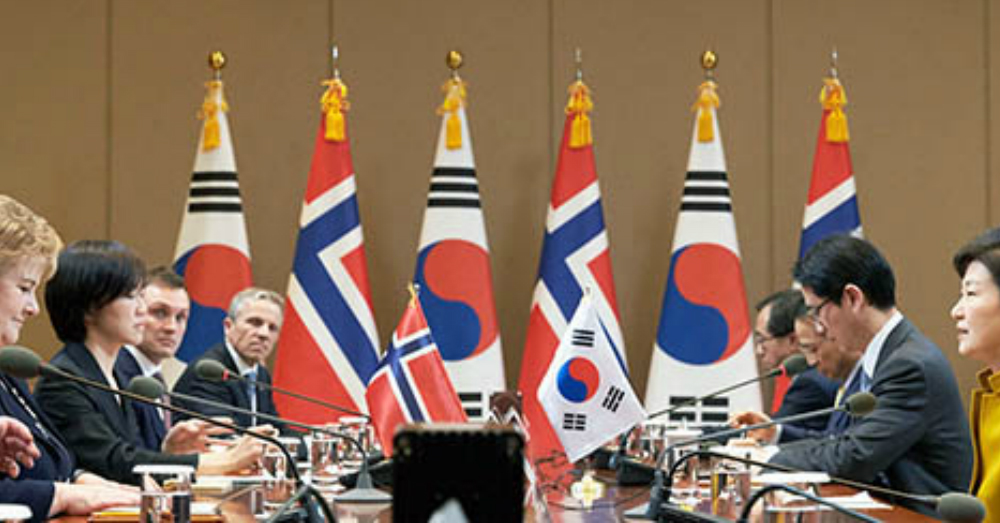When it comes to producing zero emissions from a vehicle California is the most aggressive place on the planet and the one which has so far been leading the way in every form of alternative fuels for vehicles. This makes California the king of the hydrogen fuel cell vehicles with many of the cars that operate on hydrogen being made by Toyota and Hyundai. Even though Japanese cars currently lead the way when it comes to hydrogen fuel, Norway and South Korea are partnering together to put their own stamp on this market and work toward creating an alliance that will give the Japanese brands some stiff competition.
Recently the Norwegian Ambassador, Jan Grevstad, spoke at the Korea-Norway Economic Cooperation Council to help promote H2 cars that will operate on hydrogen fuel cells. This is one area of cooperation between the two countries and he would love to see this improve and expand to help bring more hydrogen powered vehicles to the market over the next several years.
The cooperation between the two countries pairs the engine technology from South Korea with the hydrogen production and infrastructure technologies of Norway. Because of the current success of these ventures Grevstad feels the two countries could work together on other energy projects to make use of solar and wind in their efforts to create clean and sustainable energy production for their countries.
Even though the first Toyota Mirai was recently brought to Norway, the country has been a strong proponent of hydrogen powered vehicles for many years. In 2009 there were several hydrogen cars that made a road trip from Oslo to Stavanger as part of the 24th Electric Vehicle Symposium to show what these cars were capable of doing. Mazda even brought thirty hydrogen powered vehicles, the RX-8 RE, to Norway in 2009 to give the country a good look at more H2 technology.
While we’re familiar with the Toyota models that have been sold in the US for some time now, Hyundai has been leasing the Tucson Fuel Cell in California to those who live within range of a hydrogen refueling station. While this limits the number of customers Hyundai has had for these vehicles the fact there is no emissions and these vehicles still produce the power we want, Hyundai has shared their belief that hydrogen has a bright future in the automotive industry.
In Germany there is a Tucson Fuel Cell car sharing program which allows different people to use these vehicles for their own needs. So far Hyundai has sold 26 Tucson Fuel Cell models in Norway and about 500 around the world, but with a limited infrastructure this is expected.
Will hydrogen become the choice fuel of the future? It seems Norway and South Korea certainly hope so and since burning hydrogen only produces water vapor, which can be considered a zero emissions process this is absolutely one way we can cut down on the pollutants that are put into the air each year. The next challenge may be developing the infrastructure further in areas where these vehicles have already been sold to help increase the demand and use of them.
This post may contain affiliate links. Meaning a commission is given should you decide to make a purchase through these links, at no cost to you. All products shown are researched and tested to give an accurate review for you.
